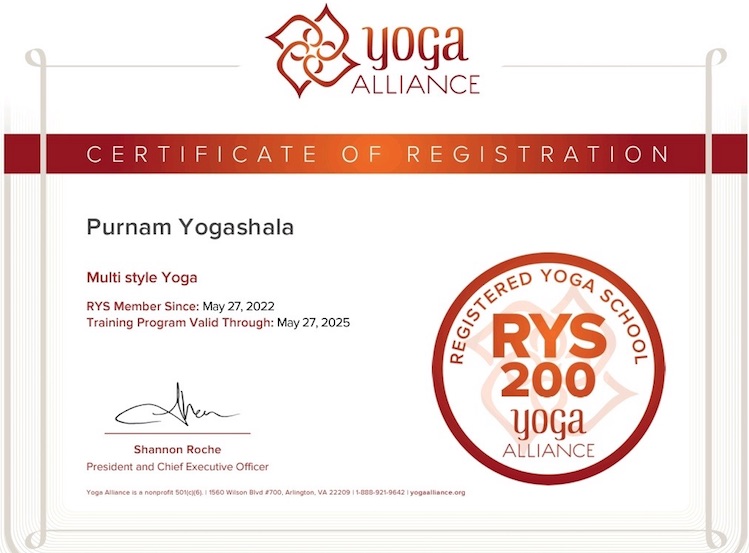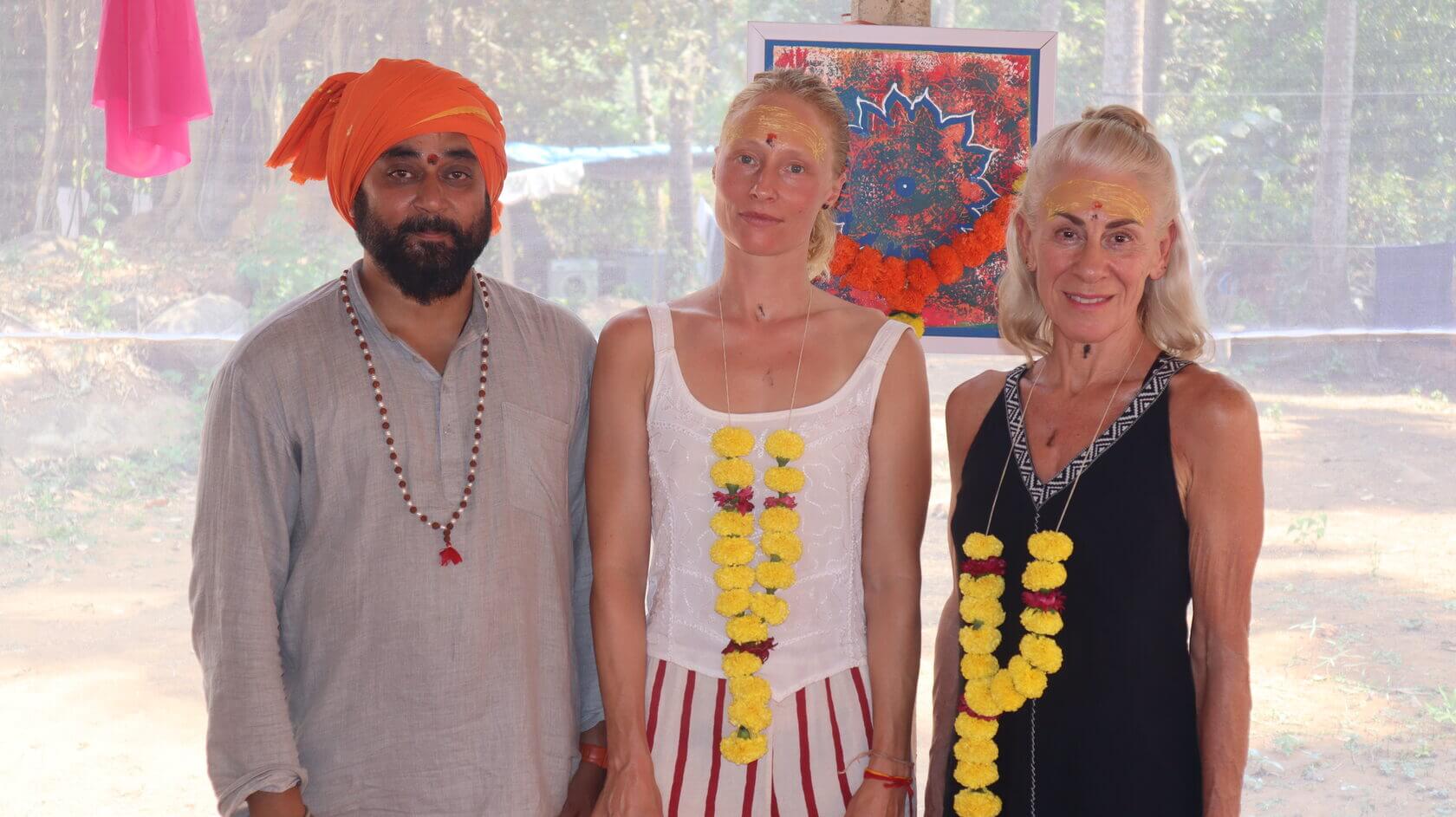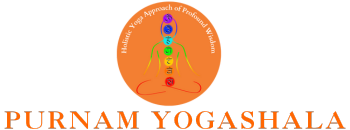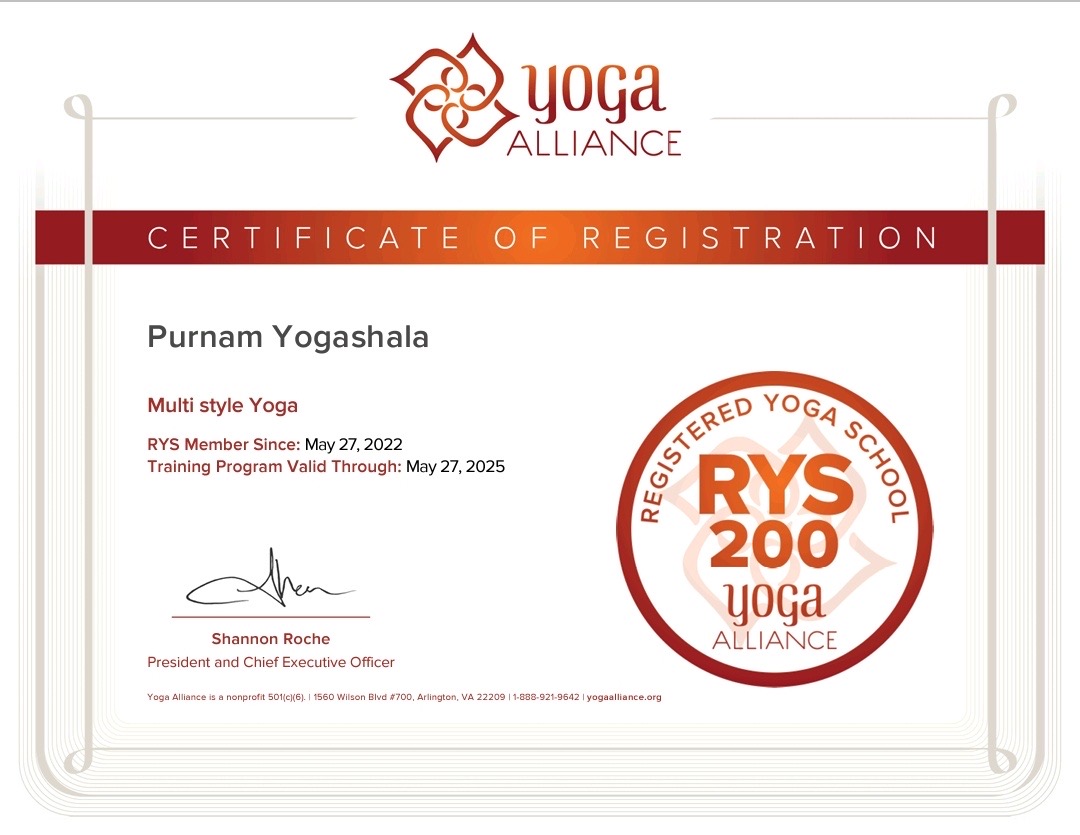Offline 200 hours Yoga Teacher training in India
200 Hours Yoga Teacher training program to deepen yours practice and have a chance to become a certified yoga teacher


About the 200 hours YTTC
Purnam yogashala,we believe Yoga is for everyone. It is our mission to honor and embrace each student’s search for personal growth, well-being, and fulfilment, by offering ideal Yoga programs to people of all ages and all walks of life.Purnam yogashala is a Yoga Alliance registered school which provides an insight to Asana, Pranayama andother practices coming from the tradition of Hatha Yoga. Daily asana classes as well as teacher training course are conducted throughout the year. The classes are deep, spiritual and informative. At the end of each class a short talk, satsang is given where any questions regarding philosophy, practice, love, life and everything in between is welcome.
Purnam yogashala is unique and peaceful yoga school on Agonda beach south goa, India that’s offer you USA yoga alliance registered 200 hours teacher training (yttc) in Goa India and continuing yoga education. Our team consist qualified and experienced practitioners, Masters of yogic science who have been teaching the ancient wisdom of yoga form many years. Purnam yogahala aim to increase the student’s awareness and knowledge about holistic living, Yoga, Meditation, and holistic life.
Our mission is to guide yoga teacher training students from all over the world and prepare them to become confident and happy individuals who able to share their knowledge with others. We differentiate ourselves from other yoga school through a multi-lingual, well – qualified team of yoga instructors, and management, whose goal it is to spread the knowledge of yoga, love, peace, and harmony to the world. Through many years’ experiences at our own teacher training, we created a safe and Holistic space for healing and personal growth.
200 hours Course Curriculum
Purnam Yogashala RYS provides a minimum number of hours of study in each educational category, and to make up the total 200 required hours, also provides additional hours of study relevant to these categories, which may be distributed according to the school’s chosen emphasis.
200 Hours YTTC
This Course is for you if you wish to Learn from experienced teachers, Increase awareness and enhance your yoga practice
- Gain inspiration be a good human
- Learn how to remain humble and grounded in every situation of life
- Develop the power to self reflect
- Enhance your personality as a whole
- Develop the ability to guide people in yoga
About the Training Course – Course Length : 24 day
- Explore further on the Path of Yoga and become a qualified Yoga Alliance yoga instructor.
- Learn and practice yoga with experienced trainers in goal.
- Our course will provide you knowledge and experience in the true Yoga: Holistic yoga, Hatha Yoga and ashtanga vinyasa , Anatomy and Physiology Of Yogic Science, Pranayama, Ayurveda.
- Shat Kriyas, Yoga Philosophy Foundational Text Patanjali Yoga Sutras, Meditation, Yoga Nidra, Yoga Teaching Methodology, and personal and professional development etc.
6 days a week, 9 to 10 hrs teaching sessions every day and Sunday is off. The course includes two fresh Indian meals (brunch & dinner) in a day and one-morning herbal tea or Indian chai a light snack. herbal tea a light snack
RYS Teacher Training Program Standard
These Standards describe Yoga Alliance’s requirements for a Registered Yoga School that offers a 200-hour training. Topics for a RYS teacher training must be relevant to Yoga Alliance’s five Educational Categories as defined below. Purnam Yogashala RYS provides a minimum number of hours of study in each educational category, and to make up the total 200 required hours, also provides additional hours of study relevant to these categories, which may be distributed according to the school’s chosen emphasis. Purnam Yogashala with a 200-hour training (RYS 200) adequately prepares trainees to teach a general adult population and incorporates training hours in the following Educational Categories:
1.*Techniques, Training and Practice: *
2. Topics in this category could include, but are not limited to: asanas, pranayama, kriyas, chanting,mantra, meditation, and other traditional yoga techniques. These hours must be a mix between: 1 analytical training in how to teach and practice the techniques, and 2 guided practices of the techniques themselves. Both areas must receive substantial emphasis.
3. *Teaching Methodology:*
Topics in this category could include, but are not limited to:
* Communication skills such as group dynamics, time management, and the establishment
of priorities and boundaries.
*How to address the specific needs of individuals and special populations, to the degree
possible in a group setting.
* Principles of demonstration, observation, assisting and correcting.
*Teaching styles.
*Qualities of a teacher.
* The student learning process.
* Business aspects of teaching yoga (including marketing and legal).
The Teaching Methodology category covers a broad overview and analysis of teaching methods, rather
than how to practice or teach specific techniques. See the example topics below to help clarify the
differences between the Techniques, Training and Practice category and the Teaching Methodology
category:
*Example Techniques, Training and Practice Topics*
The Five Categories of Asana: The trainee will practice and learn the key poses in each category of asana (standing poses, forward bends, backbends, twists, and inversions) and will begin to develop a relationship to both the form and the function of these different categories. Maps of Alignment: Trainees will achieve comprehension of the alignment maps for each of the five categories of asanas through observation and experience of how the poses in each category share a common foundation, and how to build upon this foundation.
*Example teaching methodology topics*
Principles of Demonstrating Asanas: Discuss how effective demonstrations in class can help emphasize an alignment or other focus for the specific pose or sequence of poses. Learning Modalities: identifying your dominant style, and learning how to teach based on others’ learning styles. Use of Language and Voice: Lecture and discussion on active vs. passive language and the effective use of each; positive and conscious communication, and habitual speech and communication patterns.
*Anatomy and Physiology:*
Topics in this category could include, but are not limited to: human physical anatomy and physiology
(bodily systems, organs, etc.) and may also include energy anatomy and physiology (chakras, nadis, etc.).
Includes both the study of anatomy and physiology along with its application to yoga practice (benefits,
contraindications, healthy movement patterns, etc.).
Yoga Philosophy, Lifestyle and Ethics for Yoga Teachers:
Topics in this category could include, but are not limited to:
The study of yoga philosophies and traditional texts (such as the Yoga Sutras, Hatha Yoga Pradipika or
Bhagavad Gita)
Yoga lifestyle, such as the precept of non-violence (ahimsa), and the concepts of dharma and karma.
Ethics for yoga teachers, such as those involving teacher – student relationships and community.
Understanding the value of teaching yoga as a service and being of service to others through yoga (seva).
Practicum:
Topics in this category include:
Practice teaching (does not include assisting, observing, or giving feedback).
Receiving and giving feedback.
Observing others teaching
Techniques,
Asana
Historical context
Poses specific to RYS’s lineage—must include sukhasana and savasana
Complete sequencing (asana, pranayama, meditation) to achieve particular effect safely
Shared anatomical and alignment principles plus contraindications
Pranayama & Subtle Body
Historical context
Effects of pranayama on anatomy and subtle body
Complete sequencing of pranayama safely, including alternatives and adaptations Ujjayi, Nadi Shodhana,
Kapalabhati, among others
Koshas, kleshas, chakras, nadis and prana vayus
Meditation
Key meditation terms
Meditation methods by lineage
Ability to practice school’s chosen meditation practice
Chanting, mantras, and mudras
Anatomy and physiology:
Anatomy
Skeletal system, incl.:
* Major bones
* Types of joints
* Major muscles involved in asana
* Types of muscle contraction
Physiology
Nervous system, incl.:
* ‘fight, flight, freeze’ stress response, vagal theory, overall mind-body connection
* Cardiovascular/circulatory, endocrine, digestive systems as they relate to yoga practice
* Respiratory system, incl. muscles that affect breathing, involuntary vs voluntary breath, how air
enters and leaves body
Biomechanics
* Types of joint movements
* Joint stabilization
* Safe movement as it pertains to balancing, stretching, awareness, and physical limitations
* Contraindications, misalignments, adaptations
Yoga humanities
History
* Term ‘yoga’
* School’s lineage, style, and methodology
* Dates and key ideas such as the Vedas, Vedanta, Hatha, Colonial, Modern
Philosophy
* Definition of yoga and key terms
* Relationship between asana, pranayama, meditation per school’s approach
* Familiarity w/ major yogic texts (i.e., Yoga Sutras, Bhagavad Gita, Upanishads, Hatha Yoga
Pradipika
* Self-reflection on how philosophy relates to practice
*Ethics*
* Awareness of Yoga Sutras or similar yogic ethical precepts
* Relationship to Yoga Alliance Ethical Commitment including Scope of Practice, Code of Conduct,
and Equity Position Statement
*Comprehension of and responsibility to increase equity in yoga
* Accountability measures
* Self-reflection on how yoga ethics relate to practice and teaching
Yoga essentials
Teaching Methodology
Sequencing
Pace
Environment Cueing (verbal, visual, physical)
Class management
Professional Development
Yoga-related professional organizations, including the Yoga Alliance credentialing process
Ethical Commitment, including Scope of Practice, Code of Conduct and Equity Position Statement
Lifetime of learning and continuing education
General professionalism, including timeliness, consistency, cleanliness
Marketing and promotion
Practicum (Practice Teaching)
Course Curriculum
Traditional Hatha yoga Hatha yoga is the foundation of all yoga types that we know today. It allows the practitioner to progress surely, steadily and safely. Hatha Yoga improves concentration, flexibility and focus. With the attention to alignment, use of props and variations, it makes it suitable for all levels from beginner to advanced. During the 200 Hour Yoga Teacher Training, the Hatha asana practise provides you with a detailed and strong base, with which you can teach multiple yoga styles later. The Yoga Teacher Training content will cover all the main hatha yoga asanas (poses) with modifications, variations, and adjustments through props. Learn how to use specific asanas to cure and prevent certain disease or circumstances.
During the asana classes of your 200 Hour Yoga Teacher Training in India  you will cover :-
you will cover :-
- Sanskrit and English names for the main asana
- Correct alignment of each posture
- Variations of Postures
- Counter-Postures
- Modification of asanas to prevent injuries and encourage flexibility
- Hands-on adjustment for beginner to advanced students
- Inverted Asanas
- Beginner to Advanced postures
- Art of Teaching and sequencing
- Design and structure of a yoga class
- Use props (belt, bolster, pillow, wall, block) as supporting agents
- Establish creative and challenging classes using the right voice and words
- Asana Knowledge in traditional, therapeutic and healing context
- Important Contra-Indications and necessary modifications in relation to modern problems (Hyperthyroidism, Diabetes, Hypertension, Arthritis and so on)
Ashtanga Yoga
Ashtanga Vinyasa has become a very popular yoga style. As a fast and dynamic form of yoga, ashtanga increases blood circulation and fastens the metabolism. During your 200 Hour Yoga Teacher Training, you will cover the primary ashtanga vinyasa series.
This includes variations of the sun salutations A, B and C, standing and sitting postures, inversions, spinal twists, jumps, counter-poses and arms balancing.
- Introduction to Ashtanga
- Primary series
- Primary Ashtanga postures
- Correct alignment
- Sanskrit names
- Physical, mental, and spiritual benefits
- Body gestures (Mudras & Bandhas)
- Contraindications of postures
- Drishtis
Prayama – as an important part of yoga – develops a holistic expansion of consciousness and awakens the chakras and dormant energies. Through breath control, our mental and physical patterns are modified. The purifying benefits of pranayama lead to self-realisation and optimum health.
During thePranayama classes of your Yoga Teacher Training in India, you will be introduced to Chandra Bhedi, Surya Bhedi, Anulom Viloma, Ujjayi Breath, Sitkari, Nadi Shodhan, Sitali, Bhastrika, Bhramari and Kumbakh.
You will learn how to teach and incorporate pranayama into your own classes and study:
- 7 kinds of breaths
- Various breathing patterns and their meaning
- The Natural breath
- 7 Regulation of breath for stress management
- Calming nature of pranayama
- Relaxing benefits of the 10 main techniques
- Retention
- Diaphragmatic breath
- Yogic Breathing
- The Benefits and Contra-Indications of every single Pranayama Technique
- Pranayama Teaching Practice
Shatkarma shatkarma means six formulas or actions. These six actions include physical purification techniques with enriching mental, energetic and spiritual benefits. They aim to reduce mucous and toxins from your body, so that you can progress in your yogic journey.
During your 200 Hour Yoga Teacher Training in India, you will learn three out of the six:
- Jala Neti
- Sutra Neti
- Shankh Prakshalan
MEDITATION Our mind is always working. This is totally normal. Meditation is not about quieting the mind and shutting out all thoughts. It’s rather a practise to listen to your inner voice and gain clarity, patience and strength. It is difficult to describe meditation in a word. It can only be felt through personal experience.
For a meditation beginner, it is almost impossible to sit down and meditate without moving for an hour or more. That’s why you will learn different techniques to enter the state of meditation easily. During your Yoga Teacher Training, you will cover various meditation types such as Kundalini Meditation, Osho meditation, Power of Transformation Meditation, Candle Light Meditation, Dancing Meditation & Sound Meditation.
Meditation nourishes the practitioner with joy, self-confidence and acceptance. It lets us recognize that we belong to something much bigger than just our body and mind.
During the Yoga Teacher Training in India, you will cover: 
- Introduction to Meditation
- Self-observation
- Silent Meditation
- Breathing Meditation
- Candle Light Meditation
- Om Meditation
- Transformational Meditation
POWER OF TRANSFORMATION The Power of Transformation is a meditation technique that aims to reduce the toxic carbon dioxide levels of your body. With seven steps, this meditation practise gives you a feeling of lightness and peace. The technique was invented by Bipin Gyan. He developed the Power of Transformation practise for the fast-thinking, efficient western mind in order to experience bliss, transformation and silence.
The benefits:
- Mental peace
- Physical health
- A clear vision
- Strong mind
- Supportive thoughts
- Removal of negative energies
- Physical detox
YOGA PHILOSOPHY The Philosophy behind yoga is as important as the practise itself. Understanding the how’s and why’s behind spirituality, growth and healing powers of yoga, will encourage you to be the best version of yourself and a knowledgeable yoga instructor.
During the Yoga Teacher Training in India, you will get introduced to the Indian Yogic Philosophy and cover various concepts of Yoga according to Patanjali. You will study the Yamas and Niyamas, foundation of yoga, history of yoga, concept of Yoga and Gods
Human anatomy and physiology of yoga As a yoga instructor and practitioner, you should be familiar with the anatomy and physiology of yoga. Perfect health states that all body systems work in harmony together. If one of the systems is out of balance, all others are disturbed and cannot function properly anymore.
In the Anatomy classes of your Yoga Teacher Training in India, you will learn about the nervous, cardiovascular, respiratory, skeletal, muscular, endocrine and digestive system and how they are related to yoga. We pay special attention to how yoga positively impacts the physical body and hormonal glands.
MANTRA CHANTS you will get the chance to discover your inner space while practising mantras. Mantras are used to free the mind from its limitations and let the soul resonate with the universal sound. Furthermore, chanting mantras promotes world peace, lifts the group energy and purifies the environment.
During the 200 Hour Yoga Teacher Training, you will learn and be able to chant:
- Gayatri Mantra
- Shiva Mantra
- World Peace Mantra
- Food Mantra
About the Food Mantra
Before every meal, we will chant a food mantra all together to value our meal, feel gratitude and calmness before eating. The idea is to be present and understand that the food nourishes our body and mind. In the yogic path, we encourage a healthy and positive relationship with food.
AYURVEDA The Doshas: Pitta, Vatta, Kapha
- The Gunas
- Ayurvedic herbs and spicesra
- Health according to Ayurveda
- Nutrition according to Ayurveda
- The origin, benefit and importance of Ayurveda
- Its relation to Yoga
- How to balance your dosha
- Dietary recommendations according to the dosha
TEACHING METHODLOGY As an aspiring yoga instructor, you have to be familiar with structuring your class and creating a suitable environment for your students. During the Teaching methodology and practice, you will learn how to apply the right techniques and modifications in different situations. Learn some secrets and tips from experienced teachers:
- Design a unique class
- Follow a certain theme
- Structure and time management
- Diverse teaching tools
- Expand your focus individually
- Learn through mistakes and take notes
- Time Management
- Safety during class
- How to set up and provide a positive environment
- Attention Distribution
- Use of Props and Variations for less advanced students
Rules, Ethics and Regulations
Get one-on-one feedback from your supervising teacher As an aspiring yoga instructor, you have to be familiar with structuring your class and creating a suitable environment for your students. During the Teaching methodology and practice, you will learn how to apply the right techniques and modifications in different situations. Learn some secrets and tips from experienced teachers:
- Design a unique class
- Follow a certain theme
- Structure and time management
- Diverse teaching tools
- Expand your focus individually
- Learn through mistakes and take notes
- Time Management
- Safety during class
- How to set up and provide a positive environment
- Attention Distribution
- Use of Props and Variations for less advanced students
- Rules, Ethics and Regulations
- Get one-on-one feedback from your supervising teacher
Schedule
Daily yoga practice and learning schedule
200 Hours Yoga TTC Daily Schedule
Schedule 05:30 AM To 01:30 PM
05:30 AM – 06:00 AM
Wake up and Half Bath
06:30 AM – 07:30 AM
Shatkarma | Pranayama | Mantra Learning
07.30 AM – 08:00 AM
GREEN TEA
08.00 AM – 09:45 AM
Holistic Hatha Yoga Practice | Prana Kriya | Raja Yoga
09:45 AM – 11:00 AM
BREAKFAST
11:00 AM – 1:00 PM
Workshop of Asana | Practicum | Body Adjustment – Alignment | Anatomy & Physiology
1:00 PM – 02:00 PM
Lunch
02:00 PM – 03:00 PM
Personal Time
03:00 PM – 04:00 PM
Philosophy
04:00pm – 04:30 PM
Ginger Lemon Honey tea
04:30 – 06:00 PM
Ashtanga primary series | Iyengar Yoga
06:00 – 06:30 PM
Sun Set Time
06:30 PM -07:30 PM
Sound Healing | Mediation | Mantra chanting
07:30 – 08:30 PM
Dinner
08:30 PM
Silence Begins until 6:30AM next day
*Saturday half day ending 4:00 PM | Sunday is holiday & rest day
*Program & time can change according to condition & students need etc
*The kitchen will remain closed on Saturday night and Sunday
Terms and Conditions
Agree to Following Terms and Conditions
All aspirants are advised to carefully consider the time and resources required for the course before forwarding the application for the program.
The deposit submitted with the application is neither refundable nor transferable. However, in case of emergencies and other unavoidable exigencies Purnam yogashala at its discretion permits students to go for any other scheduled course.
We therefore request that all applicants carefully examine their upcoming obligations so that they may be able to devote their full attention to the program.
Since this program is a collective effort of the various professionals ranging from teachers, IT department, finance department and many more. Unauthorized video recording, editing, screen recording is strictly prohibited. It can only be used for promotional purposes at the discretion of Purnam yogashala. For more details, please visit https//purnamyogashala.com/privacy_polcy/. Registration Fee
Note : The deposit submitted for this course module is neither refundable nor transferable. However, in case of emergencies and other unavoidable emergencies PURNAM YOGASHALA at its discretion permits students to go for any other scheduled course/class
Upcoming Dates
DURATION: 24 DAYS
What does the Yoga Teacher Training Course Fees include?
- Registration Fee
- Program Fee
- 200-hour Multi-Style Yoga Teacher Training certificate with Yoga Alliance at the end of the course
- Study Material with necessary stationary
- Yoga Kit
- Accommodation in a clean and spacious room
- Three nutritious and healthy vegetarian meals per day from Monday till Saturday Lunch
- Two herbal Tea daily and unlimited filtered drinking water
- Complimentary Wi-Fi
What is not included in the couse fees?
Ayurvedic Panchkarma & Treatement – Visa fee – Air fare – Taxi pick-up
What is not included in the couse fees?
Ayurvedic Panchkarma & Treatement – Visa fee – Air fare – Taxi pick-up
How to Book
Follow these steps to apply today
1
Fill out the Application
We will be in touch within 1-2 days after receiving your application!
2
Make a payment
Reserve your place with a deposit.
Final payment due two weeks before course.
3
Preprare for your Course
Take time to review the recommended resources before your stay.
In order to confirm your seat you have to deposit 250 EUR as an advance to our bank account *advance deposit is non refundable but can be used for future courses
Bank account details
PURNAM YOGA SHALA
ACCOUNT NUMBER – 50200085946655
IFSC CODE | HDFC0003151
Swift code | HDFCINBB
CONTACT NUMBER | +918219643223
Agree to Following Terms and Conditions
All aspirants are advised to carefully consider the time and resources required for the course before forwarding the application for the program.
The deposit submitted with the application is neither refundable nor transferable. However, in case of emergencies and other unavoidable exigencies Purnam yogashala at its discretion permits students to go for any other scheduled course.
We therefore request that all applicants carefully examine their upcoming obligations so that they may be able to devote their full attention to the program.
Since this program is a collective effort of the various professionals ranging from teachers, IT department, finance department and many more. Unauthorized video recording, editing, screen recording is strictly prohibited. It can only be used for promotional purposes at the discretion of Purnam yogashala.
Course Fees
1500 USD with accommodation and food
1700 USD with accommodation and food
For any inquries about the program please send email to purnamyogashalagoa@gmail.com
Whatsapp..+91-8219643223
Loved by our Students
Watch our students testimonials videos what they say about us & their experience
VIDEO TESTIMONIALS
200Hrs Course Booking Form
Early Bird Discount
Purnam Yoga Teacher's Training CourseWe makes it affordable, so that more people can be exposed to this sacred knowledge of good health and peace.
Food & Accomodation
Our experienced internationally trained chefs prepare all of our food with love and care. To ensure that our dishes are of the highest quality, we wash all of our vegetables thoroughly in filtered water. Our menu features a pure vegetarian selection (without eggs) with vegan options available, and we can accommodate most other dietary requirements. Please inform us of any dietary restrictions so that we can cater to your needs. Each meal is thoughtfully curated using seasonal, locally sourced ingredients, ensuring a unique and flavorful culinary experience every day.

Accomodation 1
AC-superior Deluxe Cottage with hot water and WIFI. Attached Washroom and Private balcony.
Our place is 2 minute’s walk from the Arabian sea
Accomodation 2
Garden facing cottages AC-superior wooden Bungalow with hot water and WiFi. Bungalow is made with ecofriendly material, attached toilet and shower.
Our place is 2 minute’s walk from the Arabian sea
Non-AC Accomodation
Garden facing cottages wooden Bungalow with hot water and WiFi. Bungalow is made with ecofriendly material, attached toilet and shower.
Our place is 2 minute’s walk from the Arabian sea
COME
EXPERIENCE
THE REAL
yOGA
START YOUR YOGA TEACHER JOURNEY
200Hrs Course Booking Form
Got a Question?
Can't find answer? Don’t worry, our amazing support team will help you
Purnam YogaShala FAQ section give answer to all your question if you still have any question feel free to contact us.
How long should you do yoga before starting yoga teacher training ?
Our foundational Yoga Teacher Training (200 Hour Yoga Teacher Training in India) is for anyone from beginner to intermediate level. Even if you are completely new to yoga, you can take admissions at Purnam yoga Shala. The only requirement to join a yoga teacher training is a sincere interest and commitment to learn and practice yoga. The foundational course aims at providing:
A comprehensive understanding of yogic wisdom and Holistic Health.A grounded, yogic wisdom and health-promoting yoga practice. Contemporary teaching skills to create safe and balancing classes and practice for yourself and others.
Which yoga style do u teach ?
At Purnam yoga Shala, we teach holistic yoga, vinyasa flow, ashtanga yoga and kundalini kriys yoga . which is help you to create a strong and foundational base. Regular yoga practice creates mental clarity and calmness; increases body awareness; relieves chronic stress patterns; relaxes the mind; centers attention; and sharpens concentration, by implementing the roots of yoga, you can teach any yoga style later easily. Our courses specifically focus on understanding the true meanings of each asana and yogic technique, translating the Sanskrit terms, and clarifying modern misconceptions.
What is yoga alliance certificate ?
Yoga Alliance is an international recognition board of Yoga Education Programs. Being a registered yoga teacher training school, we ensure to maintain a very high standard of teaching quality and training. When completing a Yoga Alliance certified Yoga Teacher Training, you will enjoy many benefits such as:
Teach yoga as certified yoga teacher and legally in your own country. Being qualified to teach yoga on an international level. Obtain work abroad or travel while teaching yoga. Yoga Alliance provides meaningful and affordable educational opportunities to equip our members with the tools and resources needed to improve their business practices, network with peers, and utilize their Yoga Alliance membership to the fullest.
How much is yoga teacher training in goa ?
The tuition fees for the residential programs at Purnam yogashala start from 1200 USD and include the entire curriculum, all course materials (books, mat, T Shirt), accommodation and food. Currently we are providing early bird discounts for booking in advance.
What can I expect from a yoga Teachers ?
Training at purnam yogashala You can expect to embark on a transformational journey, re-discover your entire being and learn to integrate the ancient and healing techniques of Yoga into your everyday life. You will be able to let go of past pain, confusion and tensions and at the same time rejuvenate, re-connect and de-stress. The yogic journey looks different for everyone, but this is what we can guarantee you: the combination of detoxifying techniques, sattvic (pure) meals, , daily asana practice, yoga philosophy classes and yogic rituals will have a heart-opening, body-balancing and mind-calming effect on you.
The ancient history and philosophy of yoga.
The proper way to sequence and perform the poses.
Developing your daily practice so you can practice alone (very important).
Teaching methodologies.
Meditation and breathing techniques (pranayama).
Health and Ayurveda – the Indian holistic health system.
It is an intense training program.
It is really overwhelming. …
Meeting like-minded individuals.
Improving your communication skills.
Change of priorities.
Your body will be tested but strengthened. …
You will be braver.
You will feel empowered.
What is the purpose of yoga teacher training course ?
You will Get to Do Something That You Love for Work. …
You will Empower Other People. …
You will Have a Healthier Lifestyle. …
You will Meet All Kinds of People. …
You will Improve Your Own Yoga Practice. …
You will Connect with Like-Minded Individuals. …
You will Have Job Flexibility.











